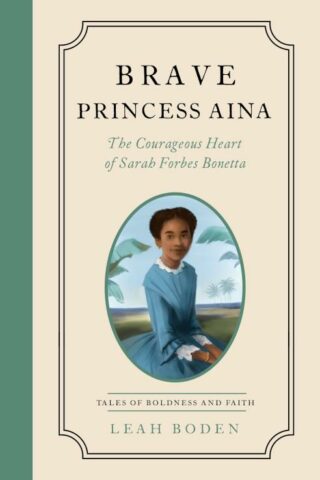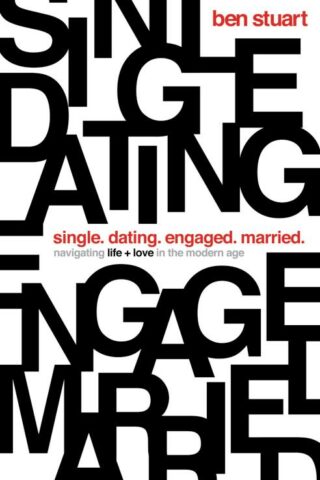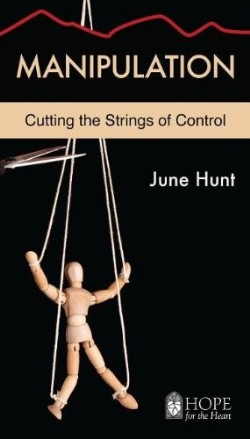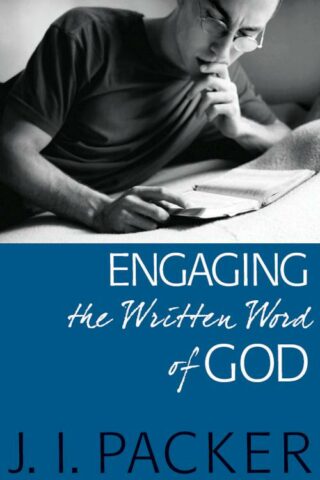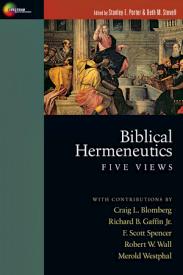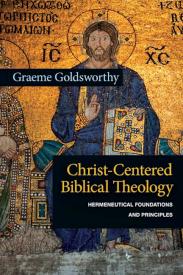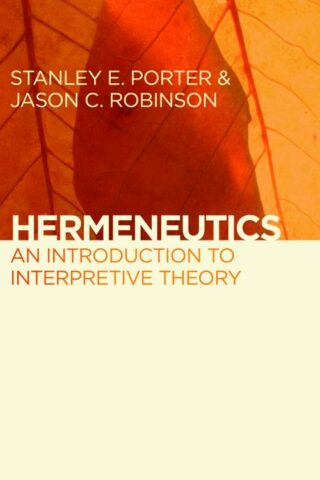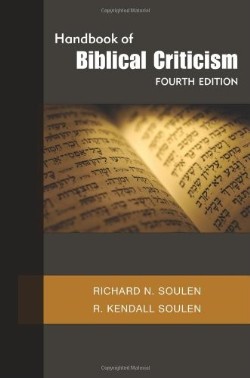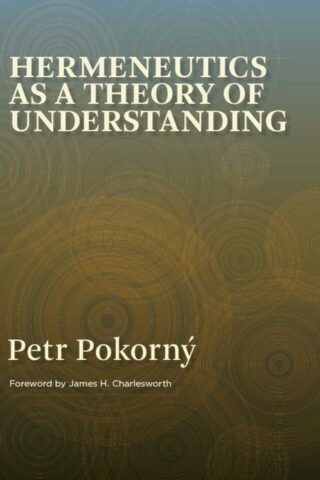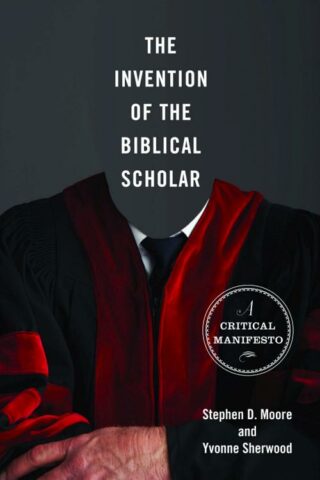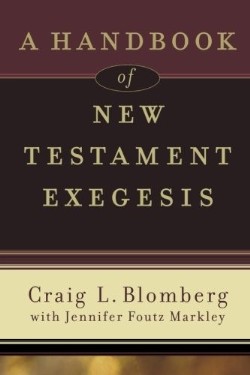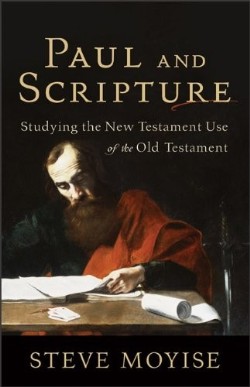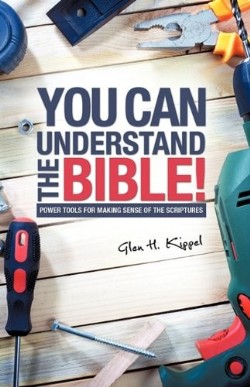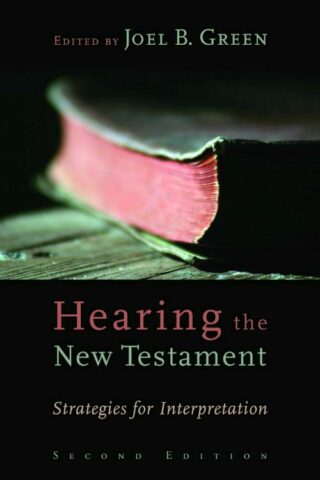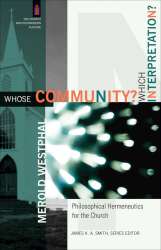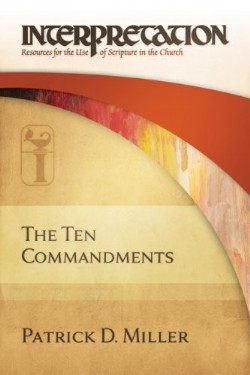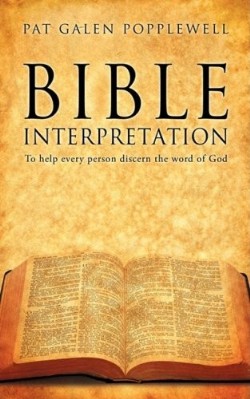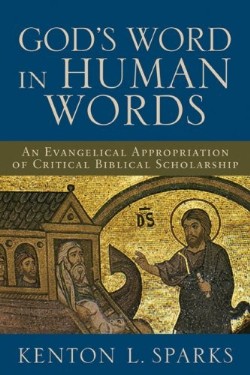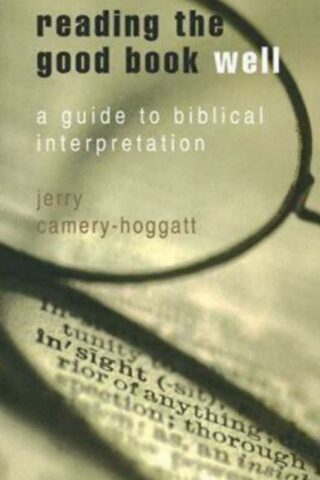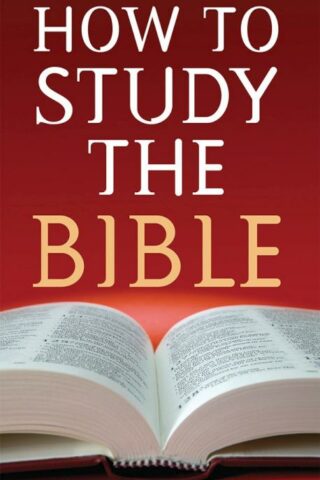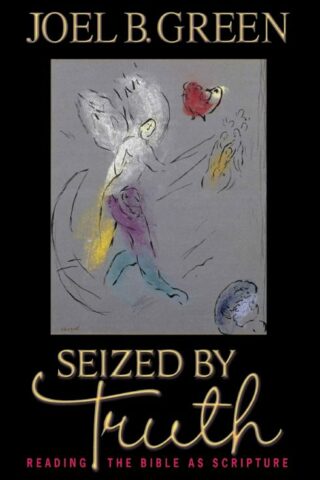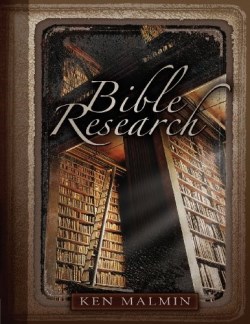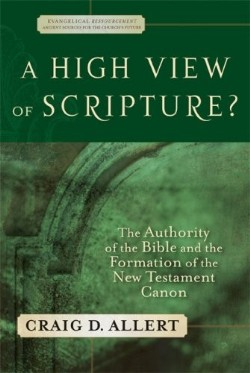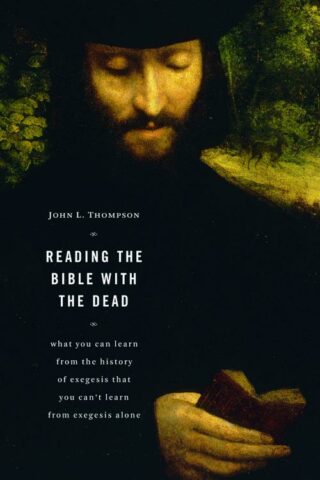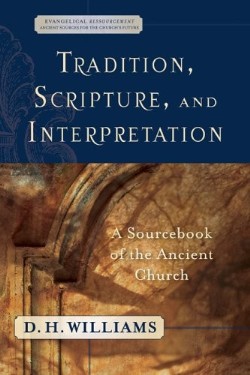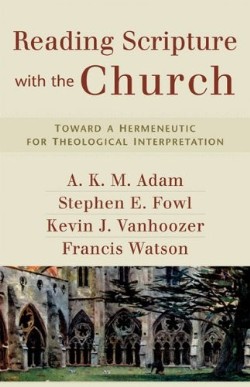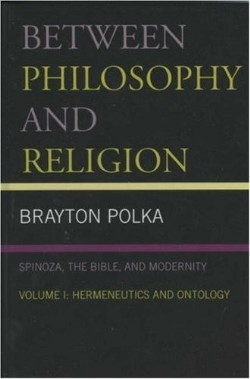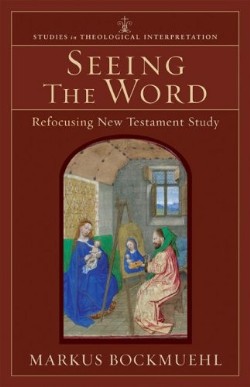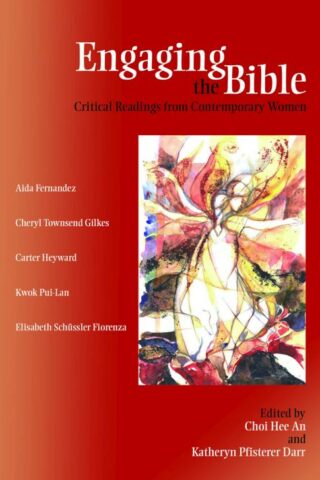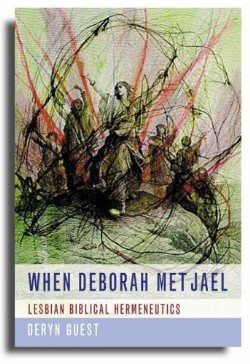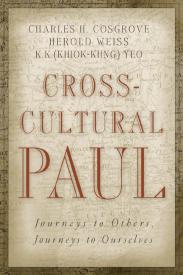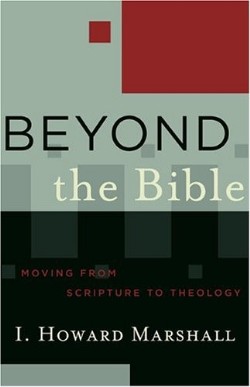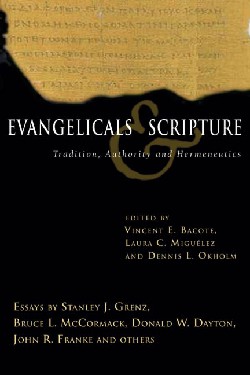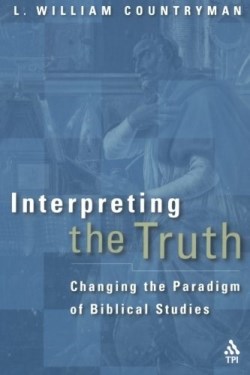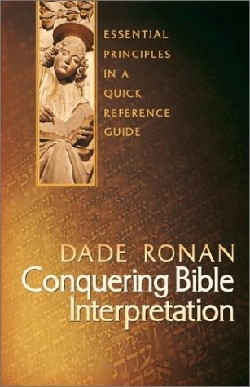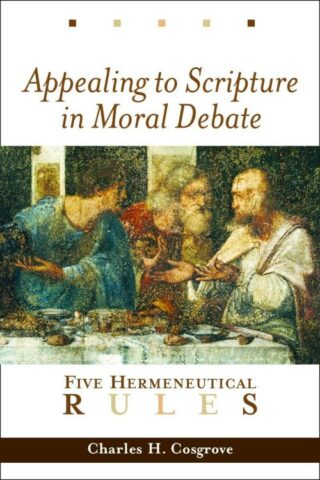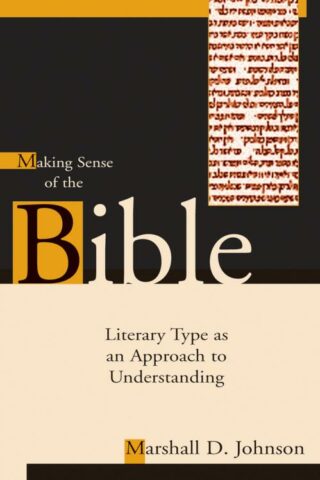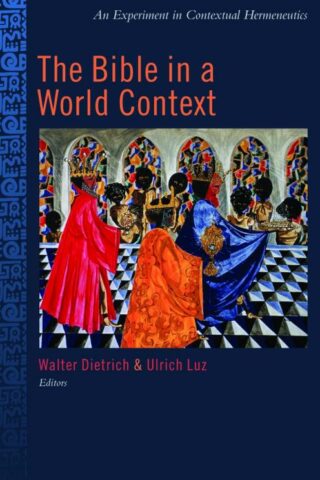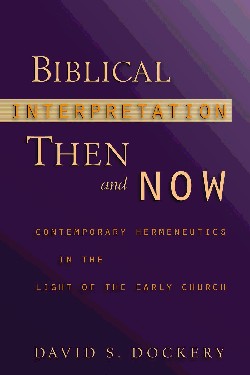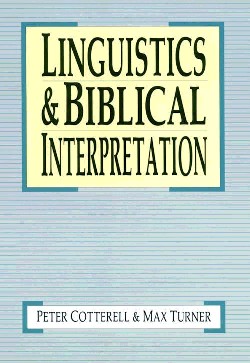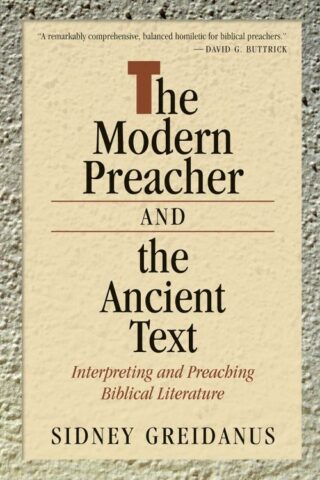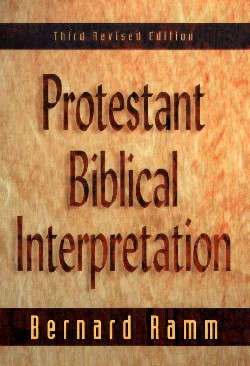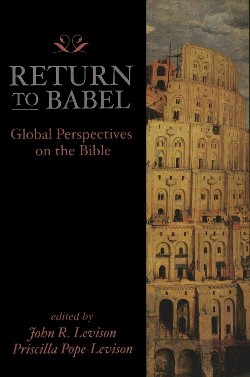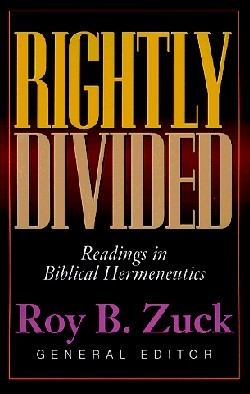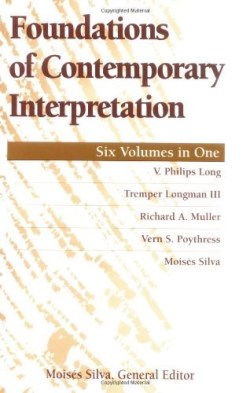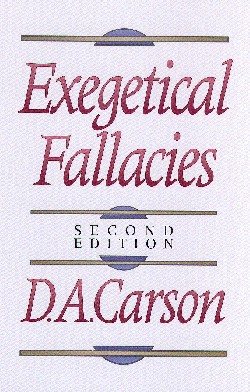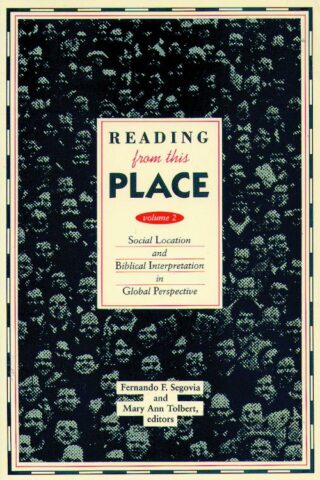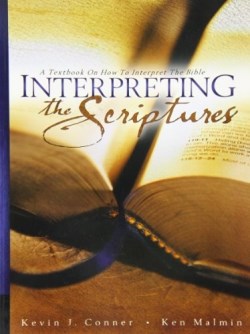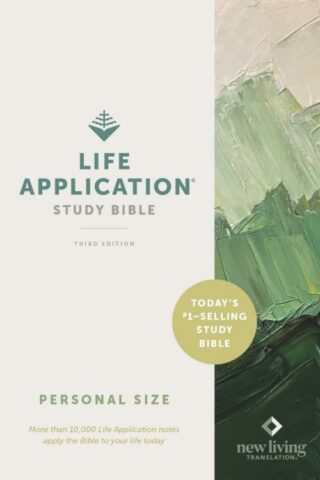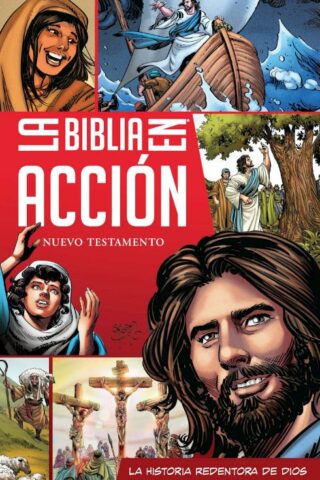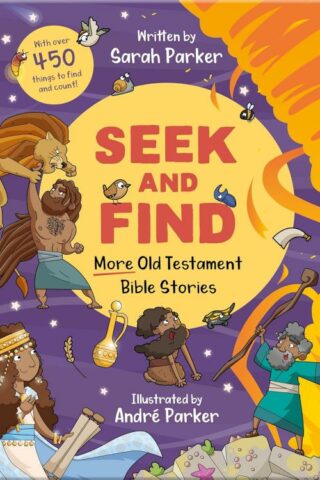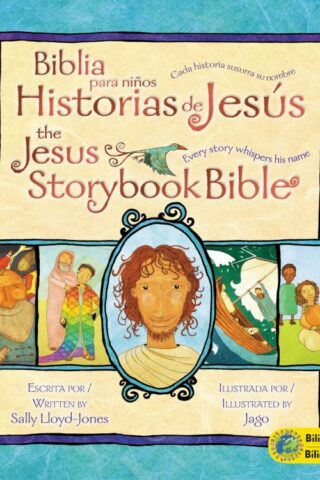Hermeneutics
Showing 51–100 of 104 resultsSorted by latest
-
Engaging The Written Word Of God
$24.98In this collection of articles written over forty years, Packer sets out his beliefs about the authority of Scripture and the principles that should be applied when interpreting it. Important topics such as the adequacy of human language, upholding the unity of Scripture, and challenges in Biblical interpretation are considered in the first two sections: God’s Inerrant Word and Interpreting the Word. In the final section, Preaching the Word, Packer turns his attention to pastoral leaders and the importance of correct and responsible expository preaching.
Add to cartin stock within 3-5 days of online purchase
-
Biblical Hermeneutics : Five Views
$29.99The latest in the Spectrum Multiview series, this book provides a forum for proponents of five approaches to biblical hermeneutics to state their case, respond to the others, and then provide a summary response and statement. Five seasoned scholars contribute to the multifaceted discussion over this contested discipline: Craig Blomberg with the historical-critical/grammatical approach, Richard Gaffin with the redemptive-historical approach, Scott Spencer with the literary/postmodern approach, Robert Wall with the canonical approach and Merold Westphal with the philosophical/theological approach.
Add to cartin stock within 3-5 days of online purchase
-
Christ Centered Biblical Theology
$29.99The appeal of biblical theology to Christians is that it provides a “big picture” that makes sense of the bulk and variety of the biblical literature. It seeks to view the whole scene of God’s revelation of his one mighty plan of salvation. The Bible ceases to be a mass of unconnected texts, and begins to look like a unity that connects the narratives of Israel with those of the four Gospels; that shows up in the progression from creation to new creation; and that highlights the life, death and resurrection of Jesus Christ as the primary focus of the whole Bible. If the Bible is indeed the one word of the one God about the one way of salvation through the one Savior, Jesus Christ, it is biblical theology that reveals this to us. Over the last fifty years, Graeme Goldsworthy has refined his understanding of biblical theology that came about as a result of his experiences as a student, pastor and teacher in theological education. His approach was first presented in Gospel and Kingdom, and more comprehensively in According to Plan. It has been welcomed in some circles, but has not been without its critics. In this valuable complement to his volume Gospel-Centered Hermeneutics, Goldsworthy defends and refines the rationale for his approach, which has drawn particularly on that developed by the Australian biblical scholar Donald Robinson. Goldsworthy’s conviction is that biblical theology is foundational for evangelical hermeneutics, indispensable in expository preaching, and life-giving to pastoral ministry.
Add to cartin stock within 3-5 days of online purchase
-
Hermeneutics : An Introduction To Interpretive Theory
$35.99In this concentrated, intelligible, and useful introductory volume Stanley Porter and Jason Robinson give a splendid overview of hermeneutical and interpretive thought. Neither an all-inclusive survey that moves too quickly over the surface of complex issues nor a specialized volume on a single, narrow topic, Porter and Robinson’s Hermeneutics provides critical analysis of major movements and figures in hermeneutics and interpretive theory in the modern era — from Schleiermacher and Heidegger to Thiselton and Culpepper — showing especially how these interpreters and their movements have impacted biblical and theological study.
Add to cartin stock within 3-5 days of online purchase
-
Handbook Of Biblical Criticism (Revised)
$37.00The 4th edition of this best-selling textbook continues to be a valuable resource for the beginning student in the critical study of the Bible. Thoroughly revised to include the newest methods, recent discoveries, and developments in the field of biblical criticism over the past decade, the Handbook of Biblical Criticism is designed to be a starting point for understanding the vast array of methods, approaches and technical terms employed in this field. Updates in this edition also include an expanded dictionary of terms, phrases, names, and frequently used abbreviations and a bibliography that includes the most up-to-date date publications.
The Handbook of Biblical Criticism is a valuable introductory textbook, a handy, reliable guide for pastors, laypersons, and for scholars whose expertise lies in other fields.
Add to cartin stock within 3-5 days of online purchase
-
Hermeneutics As A Theory Of Understanding 1
$33.99In this primer on hermeneutics, Petr Pokorny takes up basic issues in understanding from language in general to the interpretation of the Bible.
While Hermeneutics as a Theory of Understanding deals with most of the problems of hermeneutics and their role in society and impact in history, the book’s main aim is not to introduce new methodologies or to investigate the character of human understanding by new probes into literary or historical documents. Instead, Pokorny’s principal intention is to define the philosophical and theological premises of individual projects of understanding – their interrelations, meaning, and function in interpretation, especially that of ancient texts such as the Bible.
Pokorny’s work here functions admirably both as a text for students and as a monograph that suggests new paths in hermeneutical discussion.
Add to cartin stock within 3-5 days of online purchase
-
Invention Of The Biblical Scholar
$43.33Acknowledgments
Preface: The Irreducible Strangeness Of The Biblical Scholar1. Theory And Methodolatry
2. The Invention Of The Biblical Scholar
3. Onwards Towards The PastIndex
Additional Info
What is a “biblical scholar”? Stephen D. Moore and Yvonne Sherwood provide a thoroughly defamiliarizing and frequently entertaining re-description of this peculiar academic species and its odd disciplinary habitat. The modern-and -biblical scholar, they argue, is a product of the Enlightenment. Even when a biblical scholar imagines that she is doing something else entirely (something confessional, theoretical, literary, or even postmodern), she is sustaining Enlightened modernity and its effects. This study poses questions for scholars across the humanities concerned with the question of the religious and the secular. It also poses pressing questions for scholars and students of biblical interpretation: What other forms might biblical criticism have taken? What untried forms might biblical criticism yet take?Add to cartin stock within 3-5 days of online purchase
-
Handbook Of New Testament Exegesis (Reprinted)
$40.00Introduction
1. Textual Criticism
2. Translation And Translations
3. Historical-Cultural Context
4. Literary Context
5. Word Studies
6. Grammar
7. Interpretive Problems
8. Outlining
9. Theology
10. Application
Summary
Appendix: Checklist For Doing Biblical ExegesisAdditional Info
This handbook provides a one-stop-shopping guide to the New Testament exegetical method. Brief and approachable, it offers both a broad overview of the exegetical process and a step-by-step approach to studying the New Testament in depth, helping students and pastors understand the text and appropriate it responsibly. The book is chock-full of illustrations of New Testament texts where the method under discussion truly makes a difference.Add to cartin stock within 3-5 days of online purchase
-
Paul And Scripture
$29.41Introduction
1. Paul And The Creation Stories
2. Paul And Abraham
3. Paul And Moses
4. Paul And The Law
5. Paul And The Prophets: Israel And The Gentiles
6. Paul And The Prophets: The Life Of The Christian Community
7. Paul And The Writings
8. Modern Approaches To Paul’s Use Of Scripture
Appendix 1: Paul’s Quotations From Isaiah
Appendix 2: Index Of Paul’s Quotations
Appendix 3: Extracts From The Dead Sea Scolls
IndexesAdditional Info
There are over one hundred explicit quotations of Scripture in Paul’s letters and at least two hundred allusions. The coming of Jesus and the birth of the church caused Paul to look at the Scriptures with new eyes, sometimes clarifying what was written and sometimes reinterpreting it. This volume illuminates Paul’s use of the Old Testament, providing a big-picture overview for students of the New Testament. Steve Moyise, a recognized expert on the use of the Old Testament in the New, discusses Paul’s handling of creation stories, Abraham, Moses, the Law, the Prophets, and the Writings. He then assesses competing contemporary approaches to Paul’s interpretations of Scripture.Add to cartin stock within 3-5 days of online purchase
-
Guide To Interpreting Scripture
$14.99Quoting verses without regard to context can have serious consequences. In A Guide to Interpreting Scripture, Dr. Michael Kyomya illustrates what scriptural interpretation is, why it is important, how to do it, and the pitfalls to avoid. Full of ways to enrich your personal study of the Bible, this guide will equip you with the knowledge and instruction you need.
Add to cartin stock within 3-5 days of online purchase
-
You Can Understand The Bible
$15.61This book will give you the power tools you need to accurately interpret the Word of God. Written in a breezy, conversational style with occasional flashes of humor, this easy-to-read book is your practical, hands-on guide to understanding where the Bible came from, how to pronounce all those unintelligible names, and why it is so important that you understand the world’s most read but sometimes least understood book.
Add to cartin stock within 3-5 days of online purchase
-
Hearing The New Testament (Reprinted)
$44.99The Challenge Of Hearing The New Testament
Joel B. GreenTextual Criticism Of The New Testament
Bart D. EhrmanHistorical Criticism And Social-Scientific Perspectives In New Testament Study
Stephen C. BartonThe Relevance Of Extracanonical Jewish Texts To New Testament Study
Richard BauckhamThe Relevance Of Greco-Roman Literature And Culture To New Testament Study
Loveday C. A. AlexanderTraditio-Historical Criticism
Holly J. CareyThe Use Of The Old Testament By New Testament Writers
Richard B. Hays And Joel B. GreenGenre Analysis
James L. BaileyRhetorical Criticism
C. Clifton BlackModern Linguistics And Word Study In The New Testament
Max TurnerDiscourse Analysis And New Testament Interpretation
Joel B. GreenNarrative Criticism
Mark Allan PowellThe Reader In New Testament Interpretation
Kevin J. VanhoozerFeminist Criticism
F. Scott SpencerAfrican American Criticism
Emerson B. PoweryLatino/a Hermeneutics
Efrain AgostoReading The New Testament In Canonical Context
Robert W. WallThe New Testament, Theology, And Ethics
Stephen E. FowlAdditional Info
A distinguished group of scholars here introduces and illustrates the array of approaches and methods used in New Testament study today. Standard approaches – text criticism, historical approaches, etc. – appear side by side with newer approaches – narrative criticism, Latino-Latina hermeneutics, theological interpretation of the New Testament, and more. Each chapter introduces a particular approach and then demonstrates how students and pastors can best use it. Five passages from different parts of the New Testament are used as sample texts throughout the book in order to facilitate understanding of the differences among the interpretive strategies. / An instant classic when first published in 1995, Hearing the New Testament has now been revised and updated, including rewritten chapters, new chapters, and new suggestions for further reading.Add to cartin stock within 3-5 days of online purchase
-
Whose Community Which Interpretation
$25.00In this volume, renowned philosopher Merold Westphal introduces current philosophical thinking related to interpreting the Bible. Recognizing that no theology is completely free of philosophical “contamination,” he engages and mines contemporary hermeneutical theory in service of the church. After providing a historical overview of contemporary theories of interpretation, Westphal addresses postmodern hermeneutical theory, arguing that the relativity embraced there is not the same as the relativism in which “anything goes.” Rather, Westphal encourages us to embrace the proliferation of interpretations based on different perspectives as a way to get at the richness of the biblical text.
About the series: The Church and Postmodern Culture series features high-profile theorists in continental philosophy and contemporary theology writing for a broad, nonspecialist audience interested in the impact of postmodern theory on the faith and practice of the church.Add to cartin stock within 3-5 days of online purchase
-
10 Commandments
$55.00With this volume, WJK is proud to introduce an exciting new phase in the renowned Interpretation commentary series. Instead of focusing on individual books of the Bible, these new additions to the expanded series will focus on the Bible’s most enduring passages and most vital themes, bringing to these topics the insight and faithful wisdom that are longtime hallmarks of the Interpretation series. In this first offering, Pat Miller studies the Ten Commandments as ancient document and as contemporary guide. With careful attention to each commandment in its original context, this book shows the reader the modern relevance of these basic principles, as well as how the ideas of each commandment influenced the New Testament and the history of Christian thought. More than an intellectual exercise, The Ten Commandments applies the call of the commandments to modern-day issues. For example, Miller discusses how the commandment “You shall not kill” relates to manslaughter, murder, execution, and war, and suggests that the story of Ruth may be read as a commentary on how to honor one’s father and mother. Future volumes are underway to address passages such as The Lord’s Prayer and the Sermon on the Mount. Issues of violence, wealth, or eschatology will be addressed as well. Surely this expanded Interpretation series will be an excellent resource for all those who teach, preach, and study the Bible.
Add to cartin stock within 3-5 days of online purchase
-
Bible Interpretation : To Help Every Person Discern The Word Of God
$19.98God, who created me and, He had chosen me for His ministry to preach the Gospel one of God’s many purpose’s in my life. I am cautious and careful to be obedient to Him to Praise, Honor, and Glorify God that has created me for His purpose. All of these words in this book, I believe have been inspired by God through the Holy Spirit that was made possible because of the sacrifice that was made by Jesus Christ our Lord and Saviour. I think back when I thought it was God instructing me to not read these other interpretations or translations of the Bible. I was being deceived by satan the enemy and ruler of confusion. Realize why we do not delight in the law of the Lord and why is it we do not meditate on these scriptures day and night. Because we are infected with the fleshly worldly lusts and desires of the media and addictions of advertisements. Satan indices our flesh with camouflaging treats of mouth watering pleasures that was seemingly pleasantly rewarding. Then after we have partaken of worldly pleasures we find ourselves obese, in credit card debt, or double or triple mortgaged. Abused our bodies till our health, well we wonder, then quickly realize we did not take great care of this Godly temple. Now, when I read the New Living Translation Bible or New International Version, King James Version, or New King James Version, I’m not intimidated. It just gives me more understanding.
Add to cartin stock within 3-5 days of online purchase
-
Gods Word In Human Words
$40.00Introduction
1. Epistemology And Hermeneutics
2. Historical Criticism And Assyriology
3. The Problem Of Biblical Criticism
4. “Traditional” Responses To Biblical Criticism
5. Constructive Responses To Biblical Criticism
6. The Genres Of Human Discourse
7. The Genres Of Divine Discourse
8. The Context Of The Whole And Biblical Interpretation
9. Negotiating The Context Of The Whole
10. Biblical Criticism And Christian Theology: A Few Examples
Conclusions: Biblical Criticism And Christian Institutions
IndexAdditional Info
In their studies, students at conservative colleges and seminaries are introduced to the methods and conclusions of critical biblical scholarship. These conclusions often produce a disconcerting challenge to the faith students came to explore. A few embrace the skeptical stance, resulting in a “secular” response. Many display a “traditional” response, rejecting biblical criticism as a threat to biblical authority and a faulty result of Enlightenment thinking. Between these two poles, is there a third way? Can evangelical students and scholars incorporate the insights of biblical criticism and at the same time maintain a high view of Scripture and a vital faith?
Kenton Sparks has wrestled with these questions as a student, pastor, and scholar. In God’s Word in Human Words, he argues that the insights from historical and biblical criticism can indeed be valuable to evangelicals and may even yield a new set of solutions to seemingly intractable problems in biblical studies while avoiding pat answers. This constructive response to biblical criticism includes taking seriously both the divine and the human aspects of the Bible and acknowledging the diversity that exists in the biblical texts. The discussion is substantive, thorough, and even controversial, as the author offers up challenges to the evangelical status quo.Add to cartin stock within 3-5 days of online purchase
-
How To Study The Bible
$2.49This brand-new guide provides a brief, concise overview of personal Bible study for the layperson. Long-time Bible teacher Robert West gives insight into the types, tools, and techniques of personal study, offering both practical guidance and encouragement to pursue the command of 2 Timothy 2:15 (“Be diligent to present yourself approved to God as a workman who does not need to be ashamed, accurately handling the word of truth”). Covering topics such as the inductive method, word studies, commentaries, dictionaries, and concordances, How to Study the Bible also emphasizes the personal benefits of private Bible time.
Add to cartin stock within 3-5 days of online purchase
-
Seized By Truth
$31.99Shows how we read the Bible and interpret Scripture in order to live in grace-filled relation to God’s divine purpose
Green contends that when we approach the Bible as Scripture, the Bible then becomes our book; these Scriptures become our Scripture. We are not reading someone else’s mail – as though reading the Bible had to do foremost with recovering an ancient meaning intended for someone else and then translating its principles for use in our own lives.
Argues that when we encounter the Bible, the fundamental transformation takes place, not through the metamorphosis of an ancient message into a contemporary meaning, but as our lives are radically changed by means of God’s Word.
Concludes that reading the Bible as Scripture has less to do with what tools readers bring to the task, than with their dispositions as they engage Scripture.
Thus, readers come to the Bible, not so much to retrieve facts or to gain information, but to be formed and ultimately, transformed.Add to cartin stock within 3-5 days of online purchase
-
Bible Research : Developing Your Ability To Study The Scriptures
$24.99Bible Research clearly explains specific methods and essential tools needed for successful Scripture study. It includes both text and self instructional workshops on specific research books such as Nave’s Topical Bible, Strong’s Concordance, Vine’s Expository Dictionary, and The Manners and Customs of the Bible.
Add to cartin stock within 3-5 days of online purchase
-
High View Of Scripture
$27.00Contents
Introduction
1. Evangelicals, Traditionalism, And The Bible
2. Introducing New Testament Canon Formation
3. Canon And Ecclesiology
4. A Closed Second-Century Canon?
5. Two Important Fourth-Century Lists
6. Inspiration And Inerrancy
Postscript
Appendix: The Fathers, Scripture, And InspirationAdditional Info
This book shows the diverse histories of the canon’s historical development and its subsequent twenty-first century implications for an evangelical “high view of Scripture”.Add to cartin stock within 3-5 days of online purchase
-
Reading The Bible With The Dead
$34.99Many Christians would describe themselves as serious and regular readers of the Bible. Yet, if we are honest, we have a tendency to stick with the parts of the Bible that we understand, leaving vast tracts of Scripture unexplored. Even when following a guide, we may never reach into the Bible’s less-traveled regions, passages marked by violence, tragedy, offense, or obscurity. Where our modern minds shy away from, however, ancient, medieval, and Reformation commentators dove into. In fact, they often displayed strikingly contemporary interests and sensitivities to the difficulties, meaning, and moral implications of the Bible’s most difficult narratives. Reading the Bible with the Dead presents a remarkably engrossing exploration of these passages through the eyes of those who came before. In doing so, readers will be left with a conviction that the legacy of the faithful interpreters of the past can guide and challenge readers and hearers today.
Add to cartin stock within 3-5 days of online purchase
-
Between Philosophy And Religion 1
$180.00Introduction: The Challenge Of Spinoza To Modernity
The Bible And Hermeneutics
The Ontological Argument And Modernity: The Relationship Between Thought And Existence
Conclusion: Hermeneutics And Ontology
Appendix 1: Critical Commentary On Works Relating To Spinoza, The Bible, And Modernity
Appendix 2: Strauss On The Bible, Philosophy, And Modernity
BibliographyIndex
Additional Info
In Between Philosophy and Religion Volumes I and II, Brayton Polka examines Spinoza’s three major works-on religion, politics, and ethics-in order to show that his thought is at once biblical and modern. Indeed, Polka argues that Spinoza is biblical only insofar as he is understood to be one of the great philosophers of modernity and that he is modern only when it is understood that he is unique in making the interpretation of the Bible central to philosophy and philosophy central to the interpretation of the Bible. This book and its companion volume are essential reading for any scholar of Spinoza.Add to cartin stock within 3-5 days of online purchase
-
Seeing The Word
$36.25Taking full account of more recent approaches and historical-critical methods, the author proposes a rethinking of the way students and scholars should approach the New Testament.
A timely prophetic plea for an ‘evangelical catholic reading of the text in our own time’
Add to cartin stock within 3-5 days of online purchase
-
Engaging The Bible
$40.00Bringing together some of the leading luminaries in feminist, womanist, and multicultural critical biblical studies in this book, each woman describes her unique perspective and offers her reading of a particular biblical scene. This is an ideal text for courses on feminist and multicultural biblical interpretation and includes discussion questions for each chapter and a list of suggested readings.
Add to cartin stock within 3-5 days of online purchase
-
Romance She Wrote
$31.00Andre LaCocque, professor emeritus of Hebrew Scriptures at Chicago Theological Seminary, has written an intriguing hermeneutical essay on the Song of Songs, concluding that it was the work of a single Hebrew poetess writing about eros love.
Add to cartin stock within 3-5 days of online purchase
-
Reading Luke : Interpretation Reflection Formation
$36.99A rich and comprehensive volume-essential reading for all those interested in how to read Luke as relevant for today In this sixth volume, the Scripture and Hermeneutics Seminar brings its past six years of work on biblical hermeneutics to bear on the gospel according to Luke. In his introduction, Anthony Thiselton, world authority on biblical hermeneutics, sets the context for a wideranging exploration of how to read Luke for God’s address today. Traditional and more contemporary approaches are brought into dialogue with each other as several top Lukan scholars reflect on how best to read Luke as Scripture. Topics covered include the purpose of Luke- Acts, biblical theology and Luke, narrative and Luke, reception history and Luke, the parables in Luke, a missional reading of Luke, and theological interpretation of Luke. Since prayer is a major theme in Luke, this volume explores not only the role of prayer in Luke, but also the relationship between prayer and exegesis.
Add to cartin stock within 3-5 days of online purchase
-
When Deborah Met Jael
$35.99When Deborah Met Jael defines and situates the significant elements that might constitute lesbian-identified readings of scripture. Deryn Guest explores the instability of the lesbian label and the concept of a “lesbian sensibility” while defending the need to retain the ‘lesbian’ identifier despite shifts to queer terminology. An exploration of the differing social locations of lesbian-identified hermeneutics, noting in particular the adverse positions of lesbians socially, economically and religiously, grounds the subsequent proposal of three principles (and accompanying reading strategies) that might characterize lesbian-identified hermeneutics. These principles, which are not to be read as progressive linear movements but rather as interweaving commitments, include a commitment to a hermeneutic of hetero-suspicion, a commitment to strategies of appropriation, a commitment to the disruption of sex-gender binaries and a commitment to making a difference (which involves a willingness to confront the issue of biblical authority). Throughout, the author evaluates strategies that have been used to date by lesbians reading scripture, identifying those strategies that are most likely to provide empowerment contemporary lesbians in a variety of social contexts and she engages closely with relevant biblical texts to demonstrate how these strategies can be applied.
Add to cartin stock within 3-5 days of online purchase
-
Cross Cultural Paul
$31.99The apostle Paul was a cross-cultural missionary, a Hellenistic Jew who sought to be “all things to all people” in order to win them to the gospel. In this provocative book Charles Cosgrove, Herold Weiss, and K. K. Yeo bring Paul into conversation with six diverse cultures of today: Argentine/Uraguayan, Anglo-American, Chinese, African American, Native American, and Russian. No other book on the apostle Paul looks at his thought from multiple cultural perspectives in the way that this one does. From the introduction outlining the authors’ cultural backgrounds to the conclusion drawing together what they learn from each other, Cross-Cultural Paul orients readers to the hermeneutical struggles and rewards of approaching texts cross-culturally.
Add to cartin stock within 3-5 days of online purchase
-
Evangelicals And Scripture
$33.99By definition, a high view of Scripture inheres in evangelicalism. However, there does not seem to be a uniform way to articulate an evangelical doctrine of Scripture.
Taking up the challenge, Vincent E. Bacote, Laura C. Miguilez and Dennis L. Okholm present twelve essays that explore in depth the meaning of an evangelical doctrine of Scripture that takes seriously both the human and divine dimensions of the Bible. The essays, selected from the presentations made at the 2002 Wheaton Theology Conference, approach this vital subject from three directions. Stan Grenz, Bruce McCormack and Donald Dayton consider the history of evangelical thinking on the nature of Scripture. John Brogan, Kent Sparks, J. Daniel Hays and Richard Schultz address the nature of biblical authority. Finally, Bruce Benson, John Franke, Daniel Treier and David Alan Williams explore the challenge of hermeneutics, especially as it relates to interpreting Scripture in a postmodern context.
Together these essays provide a window into current evangelical scholarship on the doctrine of Scripture and also advance the dialogue about how best to construe our faith in the Word of God, living and written, that informs not only the belief but also the practice of the church.
Add to cartin stock within 3-5 days of online purchase
-
Interpreting The Truth
$71.58Using the model of “reading other people’s mail,” L. William Countryman proposes that we read the letters of the New Testament as an ongoing conversation between the text itself and the modern interpreter and the community.
Add to cartin stock within 3-5 days of online purchase
-
Conquering Bible Interpretation
$16.86Tired of feeling frustrated about Bible interpretation? Do you feel it is too difficult and time consuming? Do you have a fear of getting the wrong interpretation, or a mentality that interpretation is only for theologians? With the proper tools, interpretation can be easy and done in less time than one thinks. Bible study is fun and exciting. Interpretation in not something to be feared; rather we can eagerly approach it knowing that God is ready, willing and able to help. This book equips you with the essential principles necessary to interpret the Bible for yourself with ease and accuracy. Find all the essential principles right at your fingertips. Topics include general, grammatical, historical, and theological principles of interpretation. A perfect Bible companion to help you conquer Bible interpretation!
Add to cartin stock within 3-5 days of online purchase
-
Appealing To Scripture In Moral Debate A Print On Demand Title
$27.99240 Pages
Additional Info
Arguing from scripture is one of the ways that Christians test their moral judgments. But are all methods of appealing to the Bible equally valid and effective? In this book Charles Cosgrove looks at the church’s long tradition of moral debate and analyzes five important hermeneutical rules that guide contemporary use of scripture in ethical argument. After introducing the nature of moral arguments generally, Cosgrove devotes one chapter to each of the five rules of biblical interpretation that make ethical appeals to scripture persuasive. He sets forth each rule’s rationale, provides examples of its operation, and subjects it to critique. Based not only on the work of biblical scholars and Christian ethicists but also on Cosgrove’s own experience with debates in classrooms, churches, and other Christian contexts, this volume is a valuable aid to readers who employ moral reasoning in real-life settings.Add to cartin stock within 3-5 days of online purchase
-
Making Sense Of The Bible
$21.99Knowing what kind of material you are reading is critical to knowing how it should be interpreted. Johnson fully discusses the eight major biblical forms of literature—wisdom, liturgical, legal, prophetic, historical, apocalyptic, epistolary, and Gospel. Valuable findings for multiple purposes.
Add to cartin stock within 3-5 days of online purchase
-
Bible In A World Context A Print On Demand Title
$15.99In the West, the Bible is largely read and studied abstractly, without context. This is unfortunate since the meaning and value of Scripture are rooted, first, in the contextual situations of its readers. The West has much to learn from voices in places like Latin America, Africa, and Asia, where people are reading and studying the Bible in direct relation to the often trying circumstances of their daily lives.
The Bible in a World Context is an engaging work that offers a fresh look at the subjects of Bible reading and hermeneutics from a global perspective. Three rising scholars representing three distinct geographical regions each contribute to the volume a programmatic essay on hermeneutics and a shorter Bible study on Luke 2:1-20, the account of Jesus’ birth. In showing the role that context plays in interpretation, these chapters demonstrate a contextual hermeneutics that brings familiar biblical texts to life in new and important ways.
Add to cartin stock within 3-5 days of online purchase
-
Linguistics And Biblical Interpretation
$44.99Contemporary linguistics is increasingly enlightening for biblical studies, but till now there’s been no intelligible introduction for non-linguists. This new book shows how three linguistic principles (the concept of meaning, the significance of author, text, and reader in the search for meaning, and the use of discourse analysis in determining meaning) can illumine Scripture. Each principle is illustrated with examples from the Bible and from ordinary speech. Even laypeople will be fascinated!
Add to cartin stock within 3-5 days of online purchase
-
Modern Preacher And The Ancient Text
$40.00How to choose and isolate a coherent section of Scripture, outline the main points, decide on a universal principle, choose alternate ways to preach the material (e.g., didactive, narrative, or textual), and deliver it in a creative, imaginative fashion.
Add to cartin stock within 3-5 days of online purchase
-
Protestant Biblical Interpretation (Reprinted)
$37.50The Prophets of Israel has established itself as a reliable introduction to prophecy and prophets in Israel. Students will now be able to acquire this useful textbook in a more affordable paperback edition.
According to Leon Wood, a continuity exists between Israel’s earlier nonwriting prophets and its later prophets. Both must be studied to acquire a thorough understanding of Israelite prophecy.
This assertion, for which the author of this study marshals considerable evidence, underlies the entire text of this significant volume. Instead of concentration upon the prophetic writings, the author focuses on the prophets themselves, both those who recorded their messages and those who did not. A study of the [prophets] themselves is most worthwhile, he writes, for when one sees them as people, in the day and circumstances in which they lived, he has a distinct advantage for understanding what they wrote.
The book begins with an informative introduction to the Israelite prophets represented in the canon; the author then discusses the nonwriting prophets of both the premonarchy era (including Miriam, Deborah, and Samuel) and the monarchy period (including Gad, Nathan, Ahijah, Iddo, Shemaiah, Azariah, Hanani, Jehu, Jahaziel, Eliezer, Elijah, Micaiah, Zechariah, and Elisha).
Add to cartin stock within 3-5 days of online purchase
-
Return To Babel
$46.00Each of the ten historically significant biblical texts (five OT, five NT) are interpreted by Latin America, African, and Asian biblical scholars. These international scholars draw on their heritages-proverbs, songs and tales from their cultures-to shed light on the Christian Bible and tradition.
Add to cartin stock within 3-5 days of online purchase
-
Rightly Divided : Readings In Biblical Hermeneutics
$24.9922 Chapters
320 PagesAdditional Info
Everyone who studies and teaches the Bible has a responsibility to accurately interpret and communicate God’s message. Understanding the principles of sound interpretation, therefore, is of vital importance. Pastors, Bible teachers, and anyone who studies the Scriptures will appreciate the helpful guidance of this new collection of contemporary and classic scholarship. “Rightly Divided” brings together the insights of twenty-one experience Bible scholars in the fiels of hermeneutics, providing a basic overview of hermmenuetics and also addressing specific issues of interpretation.Add to cartin stock within 3-5 days of online purchase
-
Interpreting The Symbols And Types (Revised)
$17.99The number seven, the color red, the tabernacle, the Morning Star . . . when symbols like these appear in Scripture, are Christians meant to understand them on more than one level? In this easy-to-use guide, Conner translates “the language of the divine” for believers seeking subtle shades of biblical meaning
Add to cartin stock within 3-5 days of online purchase
-
Foundation Of Contemporary Interpretation
$39.99Foundations of Contemporary Interpretation seeks to identify and clarify the basic problems of interpretation that affect our reading of the Bible today. This unique volume provides a comprehensive and systematic coverage of the field of general hermeneutics. Foundations of Contemporary Interpretation examines the impact of specific academic disciplines on the interpretation of the Bible. Previously published as separate volumes, its various sections explore the interface between hermeneutics and literary criticism, linguistics, history, science, and theology. Included in Foundations of Contemporary Interpretation, each with its own separate table of contents, are: -Has the Church Misread the Bible? — Moises Silva -Literary Approaches to Biblical Interpretation — Tremper Longman III -God, Language, and Scripture — Moises Silva -The Art of Biblical History — V. Philips Long -Science and Hermeneutics — Vern S. Poythress -The Study of Theology — Richard A. Muller. These six sections cover the interface between hermeneutics and the major disciplines.
Add to cartin stock within 3-5 days of online purchase
-
Reading From This Place Volume 2
$48.33Biblical studies are proving to be a test case of the large interpretive issues of how one’s “location”-social, cultural, ethnic, and gender-affects one’s reading of the text and its import. Segovia and Tolbert gather in this volume leading biblical interpreters from around the globe to address the complex hermeneutical and religious questions attendent to this paradigm shift.
Add to cartin stock within 3-5 days of online purchase
-
Interpreting The Scriptures
$21.99“What does the Bible mean?” the answer to this question are many and varied. Most Christians are agreed on the fact that the Bible is the inspired Word of God, given to be understood by them and assimilated into their lives. However, where they differ greatly is concerning the meaning of the Scripture. The differing viewpoints are virtually countless. Since one’s doctrine stems from one’s interpretation of the Bible and all interpretation is guided by various rules, it seems that the Christian community should be focusing its attention more on the field of hermeneutics – the science of interpreting Scripture. It is this need that provides the basis for this textbook on hermeneutics. This book assumes that a working knowledge of hermeneutics coupled with an illuminating unction of the Holy Spirit will enable those who interpret Scripture to come to a harmonious Knowledge of the truth.
Add to cartin stock within 3-5 days of online purchase

